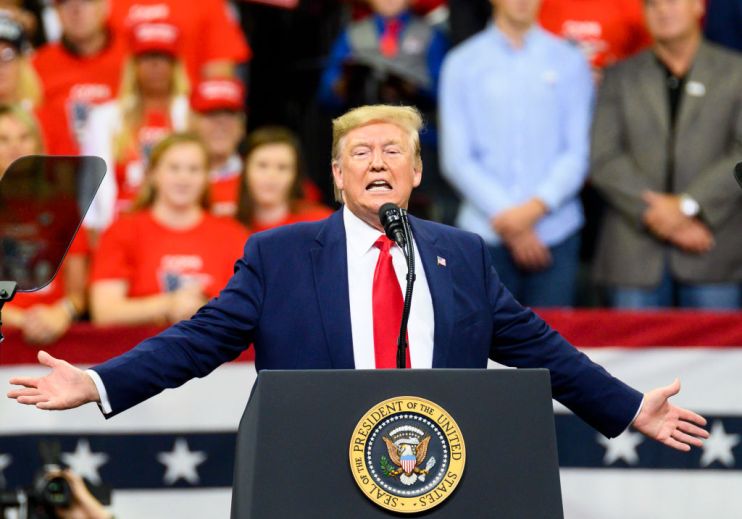DEBATE: Is a new ‘Trump deal’ the answer to the Iran nuclear problem?

Is a new “Trump deal” the answer to the Iran nuclear problem?
YES, says Ben Kelly, a commentator for Reaction.
Does anyone genuinely believe that Donald Trump’s objection to the Iran nuclear deal was based on detailed analysis of its contents? No. Trump rejected it as part of his obsession with dismantling Barack Obama’s legacy.
Now, given the escalating tensions in the region, Boris Johnson has said that the existing Iran nuclear deal should be replaced with a “Trump deal”. This has led to predictable derision, but I think the Prime Minister is onto something.
European leaders have failed dismally to influence Trump, and now it’s time to try a different approach: manipulate his vanity and take advantage of his narcissism.
Remember how pleased the President was to replace NAFTA with a new USMCA? So squeeze some minor concessions from Iran and rebrand the nuclear deal to give Trump’s ego a stroke.
A new Trump deal obviously won’t immediately stop Iran being a belligerent presence in the region, but preventing Tehran from acquiring nuclear weapons is essential. And on Iran’s side, sanctions are damaging the economy and destabilising the country.
Iran needs a ladder to climb down, and so does Trump.
NO, says Matt Gillow, communications & events manager at the British Foreign Policy Group.
The current Iran nuclear deal isn’t perfect, but the principles behind it are sound. Dominic Raab is right that while the deal as it stands is “a shell”, we shouldn’t throw the baby out with the bathwater and arbitrarily sign up to a new and unknown US agreement.
The fact is that no new deal will be a silver bullet to tensions in the Middle East. The focus should be on developing a more coherent, joint strategy in the region, while ironing out the flaws in the plan we already have.
More generally, simply kowtowing to the US on post-Brexit foreign policy would be a mistake. The UK shouldn’t miss an opportunity to shape a distinct foreign policy strategy, with a focus on convening the big picture conversations on today’s issues — from climate diplomacy through to nuclear proliferation.
Withdrawal from the current pan, in exchange for a new “Trump deal” lacking substance, risks not only progress with Iran, but also the chance for British foreign policy independence.
Main image credit: Getty